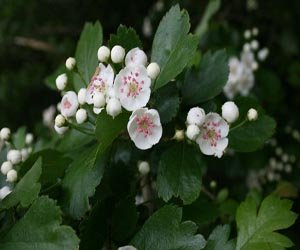|
Hawthorn
Introduction[Top] This species is also known as Crataegus laevigata. There are many species but the species I am looking at on this page grows all over the world and is indigenous to northern European regions. What Crataegus is used for[Top] Hawthorne fruit has been employed to treat heart disease since at least the first century. Additionally it has been employed for kidney and digestive problems. More recently, crataegus flowers and leaves have been used to treat heart failure and other heart conditions, this includes coronary artery disease symptoms like angina. How Crataegus is used[Top] The crataegus flowers and leaves are used to create liquid extracts, typically with alcohol and water. Dry extracts are put into tablets and capsules. Science Says[Top] Four studies that have been done conclude that crataegus notably improves heart function. The studies discovered that the crataegus can improve a patient who has heart failure, ability to do exercise. Patients reported that crataegus considerably improved their symptoms such as fatigue and shortness of breath. One study found 900mg of hawthorne extract per day taken for two months was just as effective as low dosages of captropril (a heart medication) in improving heart failure symptoms. A large study showed a standard crataegus supplement to be effective in nine hundred and fifty two heart failure patients. It compared conventional heart failure treatment with crataegus. After two years, heart failure symptoms decreased considerably in the patients who took the crataegus supplement. The patients who took crataegus also took fewer medications to treat their condition. Cautions and side effects[Top] crataegus is thought to be safe for most people when employed for short time periods. Side effects are generally mild and may include headache, upset stomach and dizziness. Back to natural healing home page
|
Loading



